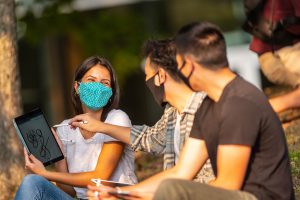
Participate in Research
Our research is possible thanks to the people who participated in them
We have several ongoing studies and are actively recruiting for a number of them. Our participants are a valued and essential part of what we do as researchers. Without the help of participants, it would be much more difficult to understand the needs of individuals with physical disabilities, and ways to improve accessibility and assistive technology. Please see below for more information about our current studies and how to get involved! For general questions, please email (coordinator.matterslab@ubc.ca) or call (604-734-1313 ext. 6292).
Actively Recruiting
A group of occupational therapy students from the University of British Columbia are working with the MATTER’s lab to test a variety of measures that may be useful to measure the impacts of peer support. For this project, we are looking for people to complete a survey. To be eligible, participants have to have had a lower extremity amputation within the last 5 years and have participated in some kind of peer support experience (one-on-one or in a group).
If interested please contact: peersupportlla.research@ubc.ca

In the meantime, feel free to check out our current and completed projects by clicking on the buttons below.
Join the Team

Interested in furthering your academic endeavours or gaining valuable research experience with a diverse and fun group of people? Please contact Dr. Miller for more information, and check UBC Careers for open work positions (https://hr.ubc.ca/careers).